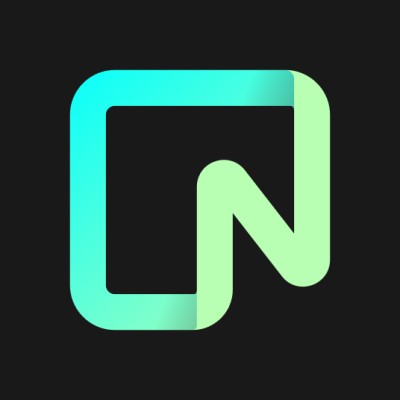Databricks Acquires Neon: A $1 Billion Leap into AI-Driven Databases
May 17, 2025, 5:00 am

Location: United States, Massachusetts, Cambridge
Employees: 51-200
Founded date: 2000

Location: Netherlands, North Holland, Amsterdam
Employees: 1001-5000
Founded date: 2013
Total raised: $19.31B
In a bold move, Databricks has announced its acquisition of Neon for approximately $1 billion. This strategic purchase is not just a financial transaction; it’s a leap into the future of data management. Databricks, a titan in the analytics space, aims to enhance its offerings in the rapidly evolving landscape of AI-driven databases.
Neon, a startup founded in 2021, specializes in serverless Postgres databases. Its technology allows for automatic database creation by AI agents, a feature that has become increasingly vital in today’s data-centric world. The numbers speak volumes: over 80% of the databases created on Neon’s platform were generated by AI, not humans. This statistic highlights a seismic shift in how data is managed and utilized.
The acquisition aligns with Databricks’ vision of integrating AI more deeply into its platform. By incorporating Neon’s serverless architecture, Databricks can offer a more flexible and scalable database solution. This is crucial for developers who need to deploy applications quickly and efficiently. The era of traditional databases is fading; the future is serverless and AI-driven.
Databricks CEO Ali Ghodsi emphasized the importance of this acquisition. He noted that the landscape of database management is changing. The demand for speed, flexibility, and error control is higher than ever. With Neon, Databricks can provide a Postgres solution that keeps pace with the rapid deployment needs of AI agents. This is not just about keeping up; it’s about leading the charge into a new era of data management.
Neon’s features are tailored for modern applications. Its serverless model allows for easy scaling and consumption-based pricing. This means developers can pay only for what they use, a model that resonates well in today’s economy. As businesses strive for efficiency, this flexibility becomes a key selling point.
The acquisition is part of a broader trend in the tech industry. Databricks has been on an acquisition spree, having previously acquired MosaicML for $1.3 billion and Tabular for nearly $2 billion. These moves indicate a clear strategy: to dominate the AI and data infrastructure space. With a valuation of $62 billion and over $19 billion in funding, Databricks is well-positioned to shape the future of intelligent data platforms.
Neon’s founders, Nikita Shamgunov, Heikki Linnakangas, and Stas Kelvich, have built a product that resonates with the needs of developers. Their vision was to create a cloud-native, open-source Postgres database that is serverless and highly scalable. With the backing of Databricks, they can accelerate this mission. The resources and expertise of a giant like Databricks will provide Neon with the support it needs to thrive.
The deal is expected to close after regulatory approvals. Once finalized, Neon’s team will integrate into Databricks, bringing their expertise and innovative spirit along. This merger of minds promises to yield exciting developments in the realm of AI and data management.
As the tech world watches, the Data + AI Summit in San Francisco, scheduled for June 9–12, will likely serve as a platform for both companies to share their vision for the future. This event will be a showcase of what’s to come, as Databricks and Neon combine their strengths to push the boundaries of what’s possible in data management.
The implications of this acquisition extend beyond just Databricks and Neon. It signals a shift in the industry. As AI continues to evolve, the tools and technologies that support it must also adapt. Companies that fail to innovate risk being left behind. Databricks is not just reacting to this change; it is driving it.
In conclusion, the acquisition of Neon by Databricks is a significant milestone in the tech industry. It represents a commitment to innovation and a recognition of the changing landscape of data management. As AI becomes more integrated into our daily lives, the need for robust, flexible, and scalable database solutions will only grow. Databricks is positioning itself at the forefront of this evolution, ready to meet the challenges of tomorrow. The future of data is here, and it’s serverless.
Neon, a startup founded in 2021, specializes in serverless Postgres databases. Its technology allows for automatic database creation by AI agents, a feature that has become increasingly vital in today’s data-centric world. The numbers speak volumes: over 80% of the databases created on Neon’s platform were generated by AI, not humans. This statistic highlights a seismic shift in how data is managed and utilized.
The acquisition aligns with Databricks’ vision of integrating AI more deeply into its platform. By incorporating Neon’s serverless architecture, Databricks can offer a more flexible and scalable database solution. This is crucial for developers who need to deploy applications quickly and efficiently. The era of traditional databases is fading; the future is serverless and AI-driven.
Databricks CEO Ali Ghodsi emphasized the importance of this acquisition. He noted that the landscape of database management is changing. The demand for speed, flexibility, and error control is higher than ever. With Neon, Databricks can provide a Postgres solution that keeps pace with the rapid deployment needs of AI agents. This is not just about keeping up; it’s about leading the charge into a new era of data management.
Neon’s features are tailored for modern applications. Its serverless model allows for easy scaling and consumption-based pricing. This means developers can pay only for what they use, a model that resonates well in today’s economy. As businesses strive for efficiency, this flexibility becomes a key selling point.
The acquisition is part of a broader trend in the tech industry. Databricks has been on an acquisition spree, having previously acquired MosaicML for $1.3 billion and Tabular for nearly $2 billion. These moves indicate a clear strategy: to dominate the AI and data infrastructure space. With a valuation of $62 billion and over $19 billion in funding, Databricks is well-positioned to shape the future of intelligent data platforms.
Neon’s founders, Nikita Shamgunov, Heikki Linnakangas, and Stas Kelvich, have built a product that resonates with the needs of developers. Their vision was to create a cloud-native, open-source Postgres database that is serverless and highly scalable. With the backing of Databricks, they can accelerate this mission. The resources and expertise of a giant like Databricks will provide Neon with the support it needs to thrive.
The deal is expected to close after regulatory approvals. Once finalized, Neon’s team will integrate into Databricks, bringing their expertise and innovative spirit along. This merger of minds promises to yield exciting developments in the realm of AI and data management.
As the tech world watches, the Data + AI Summit in San Francisco, scheduled for June 9–12, will likely serve as a platform for both companies to share their vision for the future. This event will be a showcase of what’s to come, as Databricks and Neon combine their strengths to push the boundaries of what’s possible in data management.
The implications of this acquisition extend beyond just Databricks and Neon. It signals a shift in the industry. As AI continues to evolve, the tools and technologies that support it must also adapt. Companies that fail to innovate risk being left behind. Databricks is not just reacting to this change; it is driving it.
In conclusion, the acquisition of Neon by Databricks is a significant milestone in the tech industry. It represents a commitment to innovation and a recognition of the changing landscape of data management. As AI becomes more integrated into our daily lives, the need for robust, flexible, and scalable database solutions will only grow. Databricks is positioning itself at the forefront of this evolution, ready to meet the challenges of tomorrow. The future of data is here, and it’s serverless.
